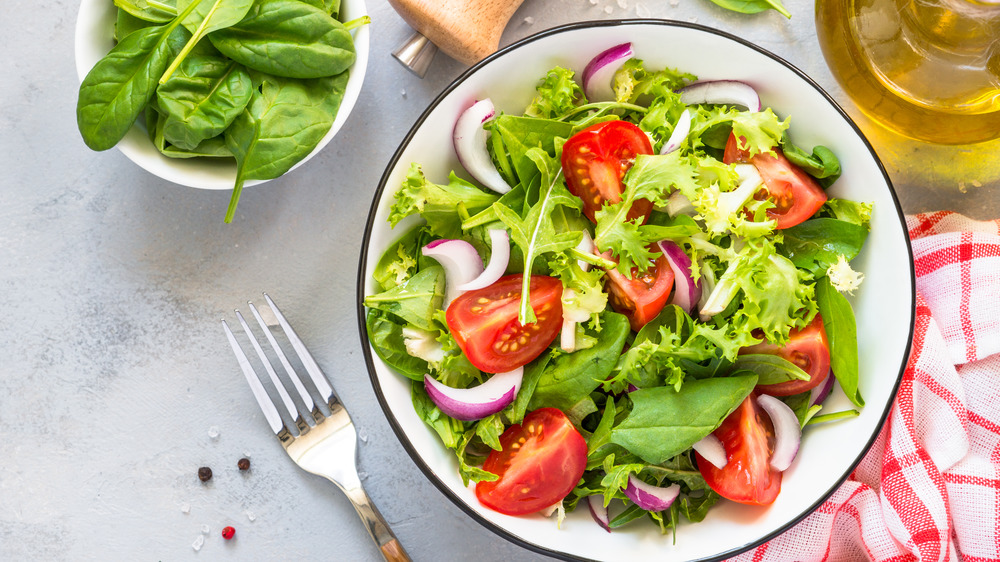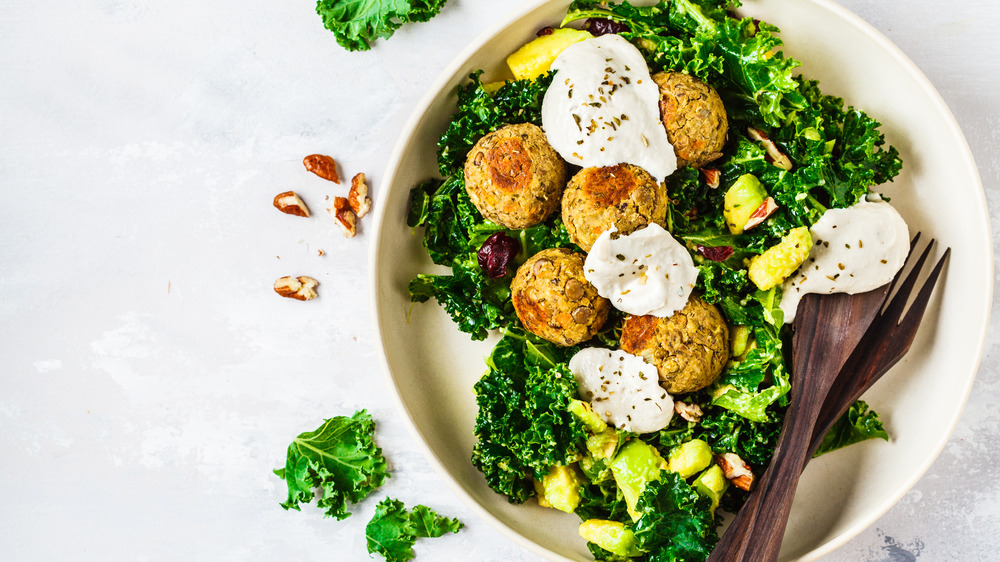The Real Reason A High-Carb Vegan Diet Could Help You Lose Weight
A new study published in the Journal of the American Medical Association has found that shifting to a low-fat, plant-based diet may help you lose weight. The study divided 244 obese participants — primarily women — into two groups. One had no dietary intervention, while the other group followed 16 weeks of a high-carbohydrate, low-fat vegan diet. After the 16 weeks, the vegan group had lost an average of 13 pounds and reduced their daily caloric intake by 14 percent.
The reason may be the high amount of fiber found in a high-carbohydrate vegan diet, Dr. Hana Kahleova, director of clinical research for the Physicians Committee for Responsible Medicine, explained to Insider. That's because fiber slows digestion, making you feel full for longer, and it requires more energy to digest. Additionally, limiting options like pastries and baked goods (made with butter and eggs) as well as dairy and all meat products may have contributed to the lower daily caloric intake by the study participants.
Are there any downsides to a high-carb vegan diet?
It's important to remember that vegan diets can be unhealthy, depending on what you eat. Being vegan simply means skipping anything made with animal products and byproducts, but doesn't require cutting out processed foods. In fact, potato chips, french fries, Oreos, and soda are all vegan, as stated by Thrillist. The recent study focused on individuals who shifted to a vegan diet that was rich in vegetables, high in fiber, and low in fat — so if you do decide to try a vegan diet, make sure it's packed with nutrient-dense options including fruit, vegetables, legumes, and whole grains. Researchers also urged study participants to eat plenty of protein and to supplement with vitamin B12, since many vegans lack sufficient B12 sources.
If going vegan seems too difficult, Harvard Health Publishing recommends starting small by adding more plant-based foods into your diet, and gradually shifting towards a plant-based diet even if you still occasionally eat meat. Start with adding an extra serving of fruit or vegetables at each meal to increase your fiber intake. You don't have to completely change the way you eat: If you love spaghetti and meatballs, simply swap white pasta out for a fiber-packed option like zoodles and add extra vegetables to your sauce. And when possible, opt at least once a day for a meat-free meal that is primarily comprised of whole grains and vegetables.


